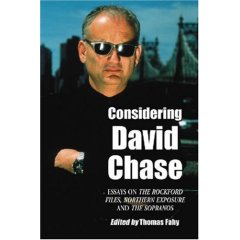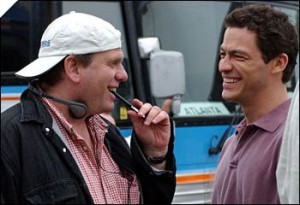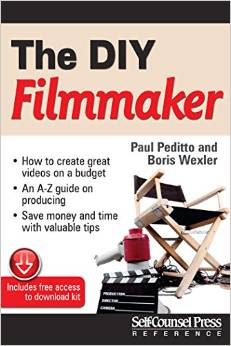So, you’re ready to roll. You’ve got the story outlined. You’ve worked the characters, got basic bios on your Protagonist, Antagonist, and key secondary characters. Worked up a basic backstory and fgured out how each sounds, what their day to day world is, how they interact, setting up A to Z character arcs along your structural outline. This leaves you only thing to do…
Write the damn thing! Want to write good dialogue? Give yourself a chance. This means not writing at 11pm after a 12-hour workday. It means not writing an hour on Saturday on the back porch before the kid’s soccer game. Is this script a priority or not? I know I know, you want it to be a priority, but life intrudes. The inconsequential matters of making money, taking care of a family, etc. I hear ya…but you’ve got to find a flow. Great dialogue will never happen if you don’t give yourself a chance. Write with energy.
Kill the Perfectionist in you. Remember the Salieri scene in Amadeus, looking at Mozart’s manuscript pages, and not a single change. The music written from God’s own hand. Guess what—you ain’t Mozart! Want to know how to not write great dialogue? Try to make it perfect the first time. Novice writers make the mistake of rewriting the first 30 pages over and over, going for perfection. Don’t do it. Rough draft dialogue, even in a fully outlined script, will probably be little more than placeholder dialogue. Don’t sweat it. You need to push out with the rough draft, get it on paper, and then rewrite. Can’t write a joke for your scene? Don’t stop, even if you have to write: INSERT HILARIOUS JOKE HERE. Kill the perfectionist in you.
Never trust the first solution. You’re in the shower when you hear it: The dialogue for the scene you’ve been struggling with—and primo dialogue! You drop the Shay Butter soap and run out to write it down. Great stuff, right?! Maybe, maybe not. If I were you, I would never trust the first solution, the first choice. Sure, write it down, but be distrustful. Maybe it’s the exact dialogue I want, but I’m not settling for it. Why? Recall Robert McKee in his book Story: The first thing off the top of the screenwriter’s head: Cliché.
Plausibility: What would I do? One of your characters says something—do you buy it? Will an audience buy it? One way you can know if a situation is truthful: Become the character. What would you do if you were facing the same choice as your character? How would you react? Is it plausible? Inhabit the skin of your characters. If it’s truthful to you, there’s a decent chance it will ring truthful for a reader, or an audience.
10-5-2-0: Finding the visual solution: You’ve got 10 lines of dialogue in a scene–see if you can write it with five lines. If you’ve got five lines, try to do it in two. If you’ve got two, can it be done without a single line of dialogue? Always look for the visual solution.
Avoid direct responses. “Who won the Super Bowl?” “The Green Bay Packers won the Super Bowl.” “They beat the Bears, didn’t they?” “They beat the Bears, yes.” “You being a Bear fan, guess it kinda sucks being you.” Pulls out a gun, shoots him. “Not as much as being you.”
Beware exposition: “Hi Phil! How about this weather, huh?” “Snow… Reminds me of when we were rolling through Baghdad…” Followed by a five-minute monologue on the Iraq War. “What’s your problem, Mary?” “My problem? I’m glad you asked…” Followed by a three-minute monologue about problems with her husband. On and on like this. Five full pages of expositional blather that crushes subtext. Don’t do it.
Write it, Read it: Many times after reading student material they seem amazed: “I can’t believe it took that long!” What I can’t believe is that they never took the time to read it when they created it. Read it as you write it, every page of it. How it looks on the page isn’t the same as how the thing will read. These are words that will come from an actor’s mouth. What’s it sound like?
Subtext: Slow Train Coming: Think of dialogue as railroad tracks. Two rails: One, the said. One, the unsaid. Subtext is saying it without saying it. Confused? I’m talking about the intention behind the scene. When you write in every thought in a character’s mind, you kill subtext.
Example: Lost In Translation. For me, one of the best directors for subtext is Sophia Coppola. Here’s a scene on an elevator with Bill Murray and Scarlet Johansson. It’s 3 a.m., they’re drunk. He desperately wants to sleep with her, she’s not so sure:
INT. ELEVATOR- NIGHT
CHARLOTTE
54?
He nods, she pushes 54 for him, 56 for herself. They look at each other across the empty elevator, both leaning against the walls.
The elevator stops at 54, he leans in to kiss her good-night. They kiss like you would on the cheek, but it’s closer to the mouth. The door shuts--he missed the floor. The elevator continues up, and stops on her floor. They kiss good-night again and she gets out before the door closes.
He watches the door close on her as she makes her way down the long beige hall.
Or, of course, the ending, where you never do hear what he whispers to her. Great choice, even in Italian!
You don’t have to say everything in dialogue. Actors fill in the emotional gaps between words. Next movie you look at, start looking at the subtext—the meaning, the emotion between the words.
Study the Masters: The Three Davids: Simon, Chase, Milch The case could be made that the “three Davids” made HBO. The Sopranos, The Wire, and Deadwood—are there three better TV shows in the history of television? David Chase defined the sound of modern gangsters with Tony Soprano and his New Jersey crew. David Milch, flat-out genius. He writes laid out on his side, dictating to a typist through a TV screen with a roomful of writers behind him, reworking even line of dialogue in Deadwood like some megalomaniacal Shakespeare (check the box set to watch him in action, pretty amazing).
Or, with The Wire, the devastating authenticity of the dialogue. The series praised for its uncompromising, documentary-style look at the social woes of modern-day Baltimore. Why does it feel so truthful? How do they do it? David Simon (and some incredible co-writers, Ed Burns, Dennis Lehane, George Pelecanos, among others) in five years created literally hundreds of characters; worked out character arcs, plot twists for entire seasons in advance, but the dialogue! We’re at home with detectives laying out one of their own on an Irish barroom pool table. We’re at home with the intricacies of City Hall, following a corrupt Mayor on his way out, and an ambitious State Senator on his way to being Governor. We’ve get a season with Polish dock workers; get a season set in the Baltimore school system; we see life on the drug-infested streets of West Baltimore. And the characters—Jimmy McNulty, Stringer Bell, Avon Barksdale, Marlo Stanfield and Omar Little—all with utterly believable, utterly authentic voices.
Isn’t it depressing, to think how far away you are as a writer from these guys? But what to do about it? You can’t go wrong studying The Davids. Their history, how did they come up with the ideas, how did the dialogue develop. Like the poet said: Writing is “war all the time.” Don’t give up.
Write a million words: I didn’t invent this one, but it’s true. How do you find your voice? Outwork the other 70,000+ people who registered scripts with the Writer’s Guild last year. Not to discourage you, but lots of folks are writing the Great American Screenplay. Maybe it’s my circle, but I know very few people writing novels. On the other hand everybody—and I do mean everybody—has a screenplay. How can you stand out? Make your dialogue sing. And how exactly do you do that? Hopefully you found some ideas here in the last couple weeks. It might just come down to this:
Work your craft.
As a playwright, I used to hate readings. I’d put in months of work, and then have actors read my stuff in front of an “objective” audience. When the lights came up, the criticism began. I was expected to go back to the drawing board, spend another two months with no pay to fix what these folks—who had spent a grand total of two hours in my world—thought was wrong. It suuuucked!
In retrospect, this was exactly the wrong attitude. Good Reader, if you break out in a rash when asked to rewrite your screenplay, you might want to stop writing screenplays. This isn’t the game for you. There’s no avoiding rewriting. The tough love comes with actually believing that rewriting is necessary and beneficial.
Seek out good council. Develop an “inner circle” of people you trust; find a writer’s group; seek out professional critique if necessary. Filter the comments; see what makes sense and what doesn’t. Then write the second draft. Then start your second screenplay. And your third. And your fourth. Control what you can control. Outwork everybody. Write a story that is important to you, to which the powers-that-be can’t say no. Make your dialogue so authentic that an audience recognizes it as compelling and true.
Write a million words.







